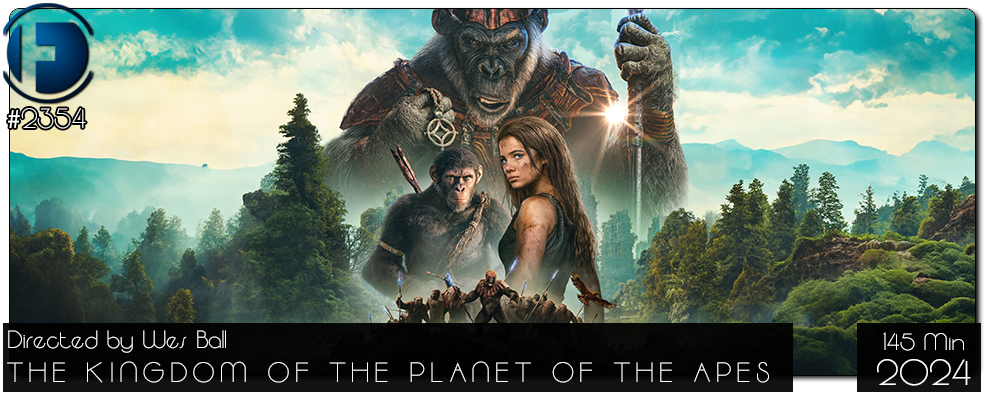Movie Review – Kingdom Of The Planet of The Apes
Principal Cast : Owen Teague, Freya Allan, William H Macy, Kevin Durand, Peter Macon, Lydia Peckham, Travis Jeffrey, Sara Wiseman, Neil Sandilands, Eka Darvilla, Ras-Samuel Weld A’abzgi, Dichen Lachman.
Synopsis: Many years after the reign of Caesar, a young ape goes on a journey that will lead him to question everything he’s been taught about the past and make choices that will define a future for apes and humans alike.
********
Minor spoiler for this film within: proceed with caution!
There are very few people who would dare to suggest that the recent Planet of The Apes franchise reboot, once a trilogy including Rise Of The Planet of the Apes, Dawn Of The Planet Of The Apes, and the climactic War For The Planet of The Apes, are anything but modern cinematic masterpieces. It’s a phrase tossed about by largely undiscerning film fans but the Apes saga continues to go from strength to strength under the guidance of directors like Rupert Wyatt and Matt Reeves, and although the storyline of the earlier three entries into this supremely VFX-heavy series seemed to wrap up with a bow by the end, incoming filmmaker Wes Ball (the Maze Runner series) picks up the baton and delivers a worthy, if not entirely thematically profound, new entry into the canon.
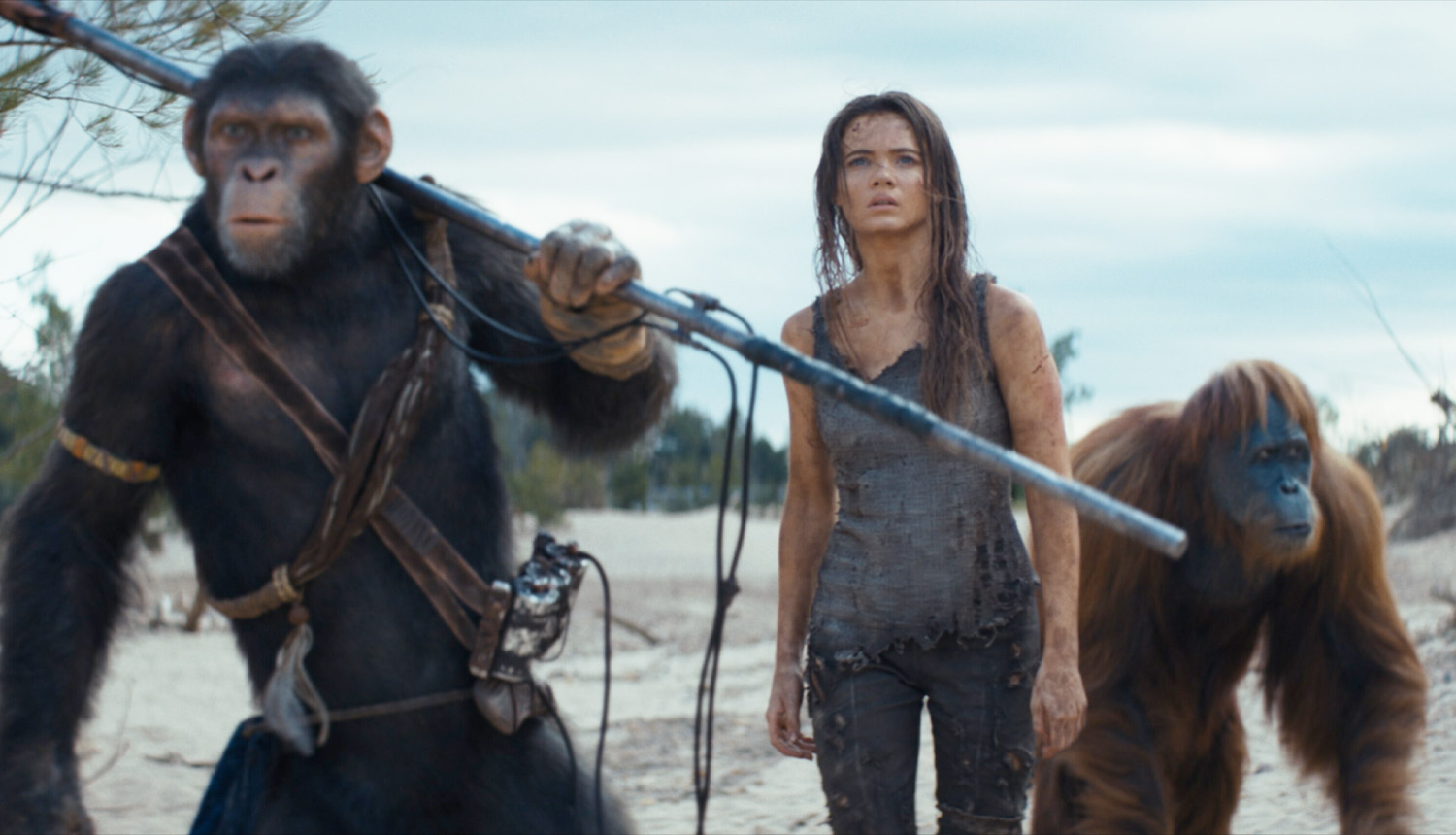
At the end of War for The Planet of The Apes, intelligent simian leader Caesar (Andy Serkis) is dead, with the Apes seemingly conquering their new human-free world and starting to develop their own unique society. Hundred of years later, the memory of Caesar has become almost a fanatical cult, with a clan of eagle-training chimps captured and enslaved by a brutish dictator gorilla, Proximus (Kevin Durand), who seeks access to a dormant ancient human bunker, defended by a pair of closed impenetrable doors. The clan’s young chimp heir, Noa (Owen Teague), who wasn’t captured, tracks his family through the sprawling Earth landscape accompanied by an ape cleric, Taka (Peter Macon – The Orville), and a supposedly vagrant teenage human, Mae (Freya Allan), who – unlike the vast majority of her human contemporaries – has retained the ability to speak; their encounters with one of Proximus’ chief henchmen, Sylva (Eka Darville) are terrifying, and their eventual arrival at Proximus’ headquarters is only the start of their cataclysmic effect on the Kingdom of the Planet of the Apes.
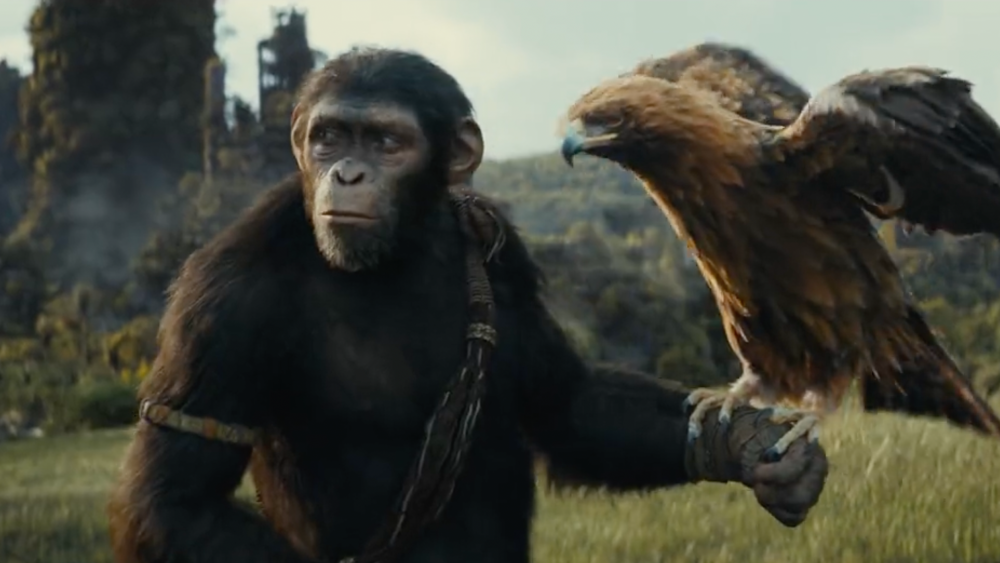
Part of the wonderful thing about the Apes franchise has always been the mirror its stories have reflected back upon our onw societies – there’s a vastly human story beneath what was once layers of rubber masks and prosthetic makeup that belied the action-oriented nature of apes riding horses and hunting people. We see ourselves, and our cultures, flaws and all, through the Apes films, perhaps moreso in the modern era of CG visual effects (surprisingly) than we ever did with the 60’s-era movies. This cathartic mix of action and thematic depth has led audiences to really fall in love with the Apes films as they are, and I posit that Kingdom, while perhaps not quite as piercing as the Matt Reeves instalments, will satisfy the vast majority of the fan base. Written by Josh Friedman, whose other post-apocalyptic credits include the Spielberg War Of The Worlds, Terminator Dark Fate and Avatar: The Way Of Water screenplays, Kingdom pushes the Apes narrative forward some three hundred years after Caesar, a character we thought we’d seen the last of but whose shadow looms so, so large here. Kingdom’s tribalist tones and antagonist humanistic tendencies displayed by the various Ape subgroups feel analogous to the tempestuous warlike nature of our current social and political climes, perhaps less subtly portrayed by Ball’s languid direction but still omnipresent with influential liberal bias. The principal story revolves around Owen Teague’s Noa (conspicuously named, for sure, and perhaps a little too on-the-nose, because there’s a literal flood in the film’s climactic moments), before shifting at one point to the viewpoint of Freya Allen’s Mae, before shifting back to Noa at the end, and this strange movement through the narrative for the audience might feel uncomfortable to watch at times but feels organically ensemble-driven, rather than primarily through a main lead.
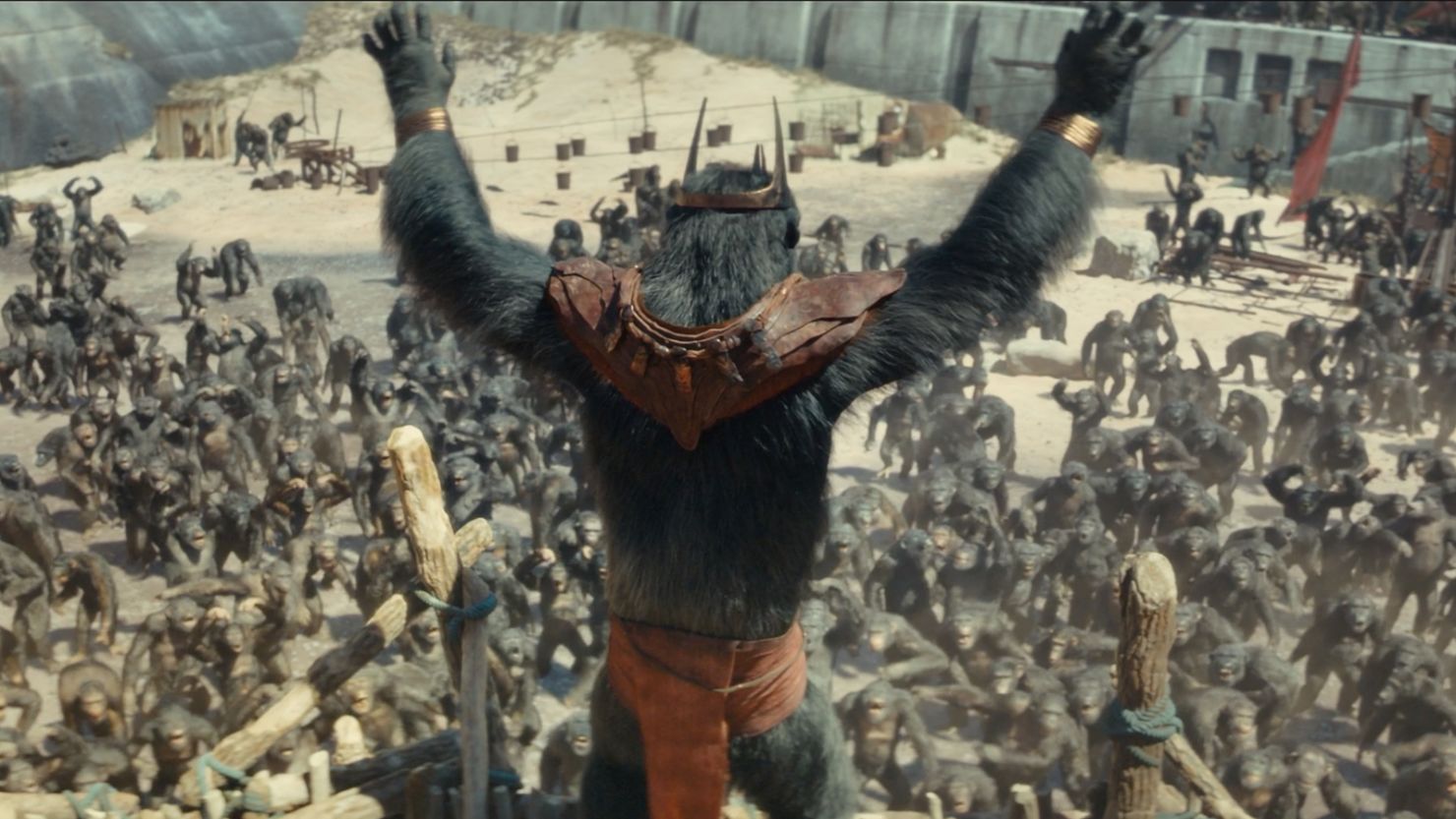
As with War for The Planet of The Apes, the breakdown of human civilisation in Kingdom, and what our planet might look like if everything was reset to zero, is a fascinating futurist watch. The concept of decay and the rebirth of life within that decay is a stark iconography for the post-apocalyptic subgenre, with the relatively newborn ape civilisation lurking around the rusting, collapsing former human superstructures like we would walk through ancient Rome or Egypt today – the ruins are there, and we marvel and wonder at them, but we’re so far removed from them in time they feel weirdly alien to us. Ball and his production team really satisfy the itch of making this Earth, this newly primordial North American landscape feel both familiar and unfamiliar brilliantly, the world-building on display is at times breath-taking. Of course, the visual effects work on the apes themselves, as with the previous three films, is flawless, and within the first few minutes you forget you’re watching almost entirely CG artifice not only existing but performing before your very eyes. The performance capture work of the ape-actors upon whom these pixel effects rest is excellent, with a grunting, stilted speaking style for prototypical intelligent apes still at a largely rudimentary stage, although the facial effects manage to convey full-throated emotion regardless. The human cast, consisting of Allen and a consistently sharp William H Macy (who could have been phoning it in, but doesn’t) as a character who takes sides with Proximus, offer the Everyman “in” to the narrative, and although it’s hard to work out why Allen’s Mae does what she does in this story, or how this motivation plays out at a practical logical level, her performance alongside the digital apes is exemplary.
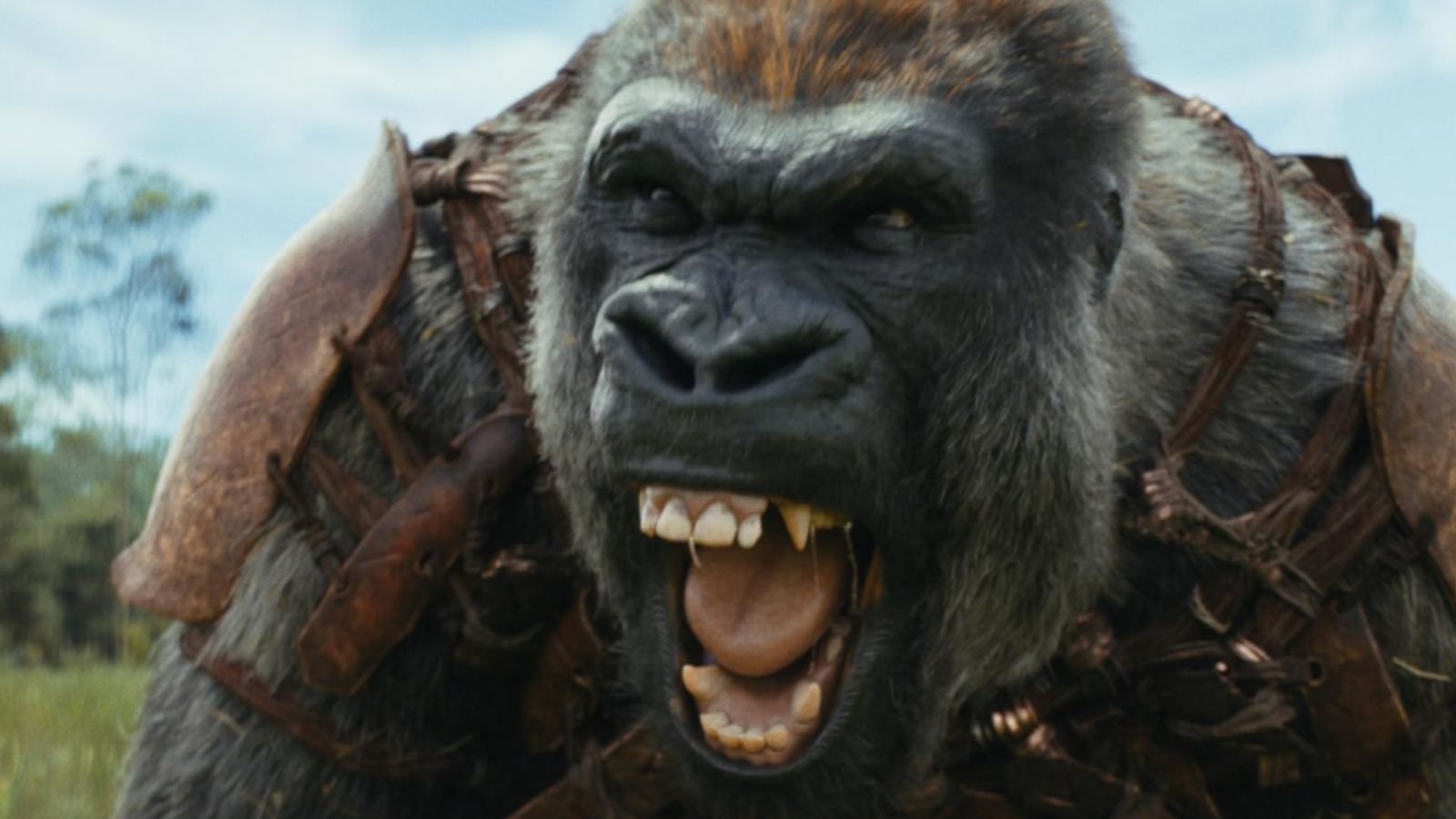
While the emotional story of Noa and his ape clan is strong, and obviously the principal arc of the movie, I did have to chuckle slightly at where the story went to by the end. There were also a could of plot points that felt somewhat illogical – and here is where I get into slight spoiler territory, so beware – in terms of character motivation. The character of Mae is ostensibly a human outcast at the opening of the film, lurking and stealing food and whatnot from Noa’s home village. Eventually, apparently, it turns out Mae is actually on a mission, a mission in which access to the story’s MacGuffin – the human doomsday bunker set aside a beachead and proving resistant to Proximus’ army’s attempts to breach it – becomes a crucial part of the future of the franchise because it involves technology, and I had to wonder.. why? Why did Mae meet up with Noa and travel with him when she could have just let herself be captured by Proximus’ forces and get to the bunker a lot more easily than she does? The specifics of this secondary plot point are a bit confusing, and I get the feeling a key element of the story’s middle was left out of the film to make way for the jaw-dropping final sequence reveal (which I won’t spoil) about the fate of humanity in this franchise, so if I had any criticism of the film it might be this. But to be honest, this quibble aside, Kingdom is a solid, solid movie experience that more than stands alongside its earlier instalments.
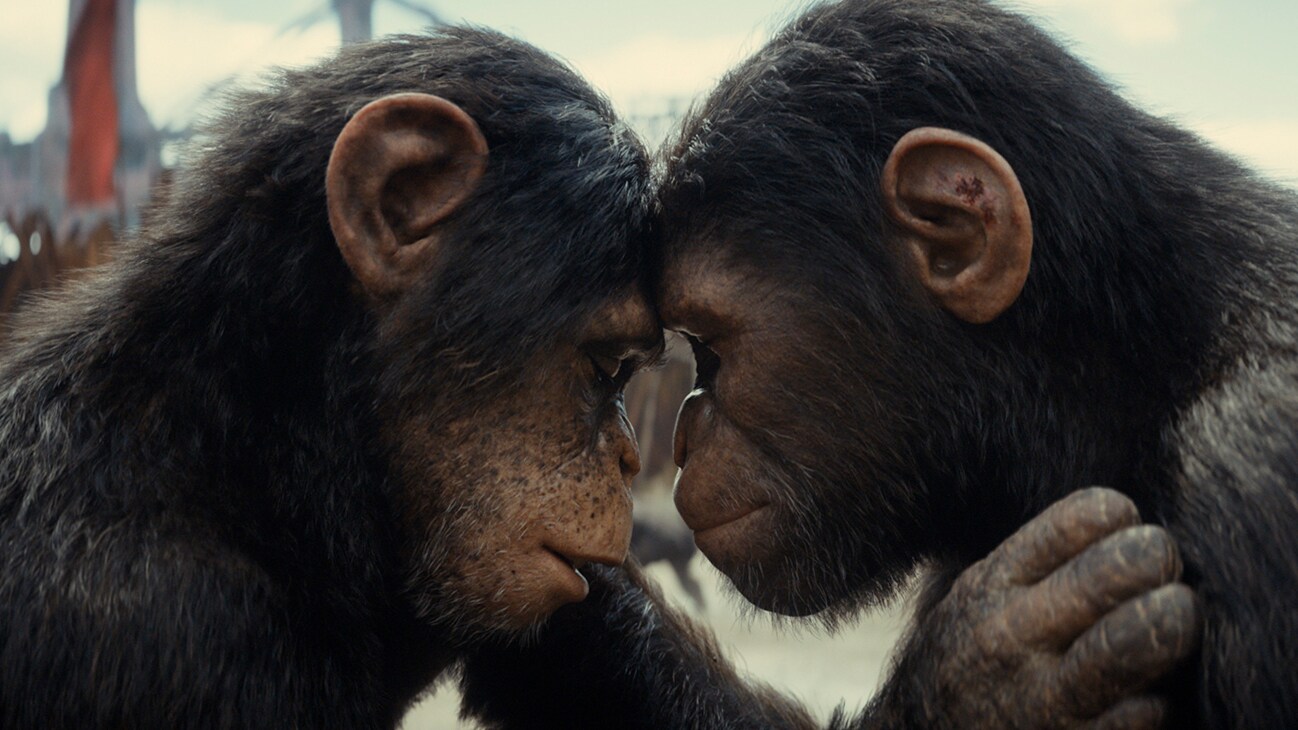
The sombre tone of the overall franchise is every-present, naturally, and the once comical approach to this series has most definitely given way to a serious, exploratory dissection of human emotions, convictions and ethics filtered through our simian bretheren. Kingdom Of The Planet Of The Apes is a commandingly solid visual effects epic, offering an intriguing new direction for the property to take us, and has more than enough popcorn-chewing action and intellect-stimulating material within its cumbersome two-and-a-half-hour runtime to warrant multiple viewings. I would think the film might have benefitted from an editorial tightening of its relatively clumsy mid-section, and there are some scenes here that add very little emotional impact to the story overall, but on the whole I don’t think you’ll come away from this film being anything less than impressed. Kingdom is a well made, well acted, well produced piece of think-piece filmmaking that never rests on its laurels, but rather explores new and interesting ways to expand this remarkably steady franchise even further.

